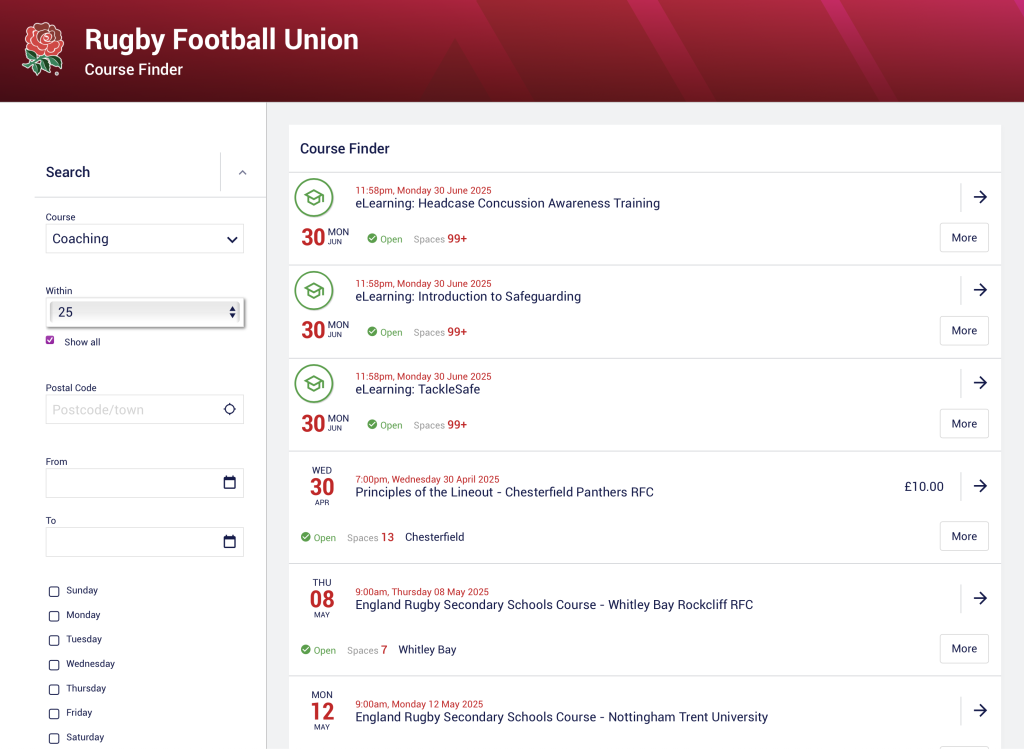Discipline at ECRU
ECRU is committed to fair play, respect, and accountability. Our disciplinary framework ensures that misconduct is handled consistently, transparently, and in line with RFU Regulation 19.
Discipline Administration & Panel Contacts
If for any reason Pamela Clarke is unavailable, the point of contact should be Declan Gallagher. If neither Pamela nor Declan are going to be available, a senior member of the panel will assume their roles.
Disciplinary Chair
HS Discipline
- Alasdair Bovaird
- David Broughton
- Gary Lee
- Ian Mortimer
- Jeremy Kendall
- Peter Wood
- All hearings are held remotely via Microsoft Teams unless otherwise directed by the Panel Chair.
- When an in-person hearing is required, it is scheduled at a time and location that is most convenient for all parties involved.
Following the sending-off of a player
Adults
The Club Discipline Secretary or Secretary should notify Pamela Clarke as Secretary to the Disciplinary Panel as soon as possible and in any event within 48 hours. This can be actioned using the form Red Card Notification Form. The form will require the following information:
Upon receipt of the referee’s report we will forward this to you with some guidance, for all offences the club should carry out their own disciplinary process following the guidance of the RFU (Discipline Procedures).
Straightforward matters may involve the adoption by the CB panel of a properly reasoned club sanction; but everything will be on a case-by-case basis.
Age Grade Rugby
Schools and clubs have responsibility for carrying out the disciplinary process following one of their age grade players being sent off or cited.
Upon receipt of the referee’s report we will forward this to you with some guidance, for all offences the club should carry out their own disciplinary process following the guidance of the RFU above.
We ask that an outcome with reasons is notified within five days where possible. The reason for the rapid turnaround is the potential frequency of age grade fixtures.
Citings:
- Citings must be submitted within seven days of the incident.
If you anticipate a citing, contact the Discipline Secretary promptly.
Follow Appendix 4 of Rule 19 in any event Adult Rugby Citing Procedures
Note there is a citing fee (refunded if citing accepted or substantiated with sufficient evidence) of £125.00 that must be paid within the seven days – an invoice will be provided for this on notification.
Match Official Disrespect or Abuse
Any offences relating to MOA will require a live hearing (note live hearings are held on Teams) and this applies to players, coaches, clubs and anyone else falling within our jurisdiction.
The club is to carry out their own disciplinary process following the guidance of the RFU (Discipline Procedures MOA Guidance) prior to the live hearing with Eastern Counties.
These hearings are to be attended by the offender and a senior club officer.
There is an mandated RFU uplift to the sanctions for any MOA case as detailed in their guidance MOA Sanction Uplift – this is in addition to the sanctions in the Regulation 19 – Appendix 2
Regulation 5.12
Eastern Counties has the power to discipline any player, official, member, or employee of a Member Club or a Rugby body (or any other person or body that submits to Rugby Football Union’s jurisdiction to discipline them) for any matter that brings the game into disrepute.
Sanctions are at large and at the discretion of the Discipline Panel, subject to natural justice and fairness.
Disciplinary Track Record of Clubs
Regulation 19.2.25 sets out where a club will be required to attend a Disciplinary Panel for a bad disciplinary record Bad Discipline Record
This will be:
- a) where a Club appears before a Disciplinary Panel eight or more times as a result of any of its players or members in a season; or
- b) when any team within the Club appears before a Disciplinary Panel on five or more occasions for any offence; or
- c) when any team appears before a Disciplinary Panel for the same offence on three or more occasions.
When dealing with a Club under this provision, the Disciplinary Panel has the power to impose sanctions as set out in Appendix 2.
Fees & Payment Details
*Refunded if citing is accepted or made out after the hearing.
Case death with on papers
£50
Any live hearing
£125
Citing Fee*
£125
Payment Details (BACS):
Account Number: 20346500
Sort Code: 20-97-40
Reference: An invoice will be provided. Please quote the invoice number.

